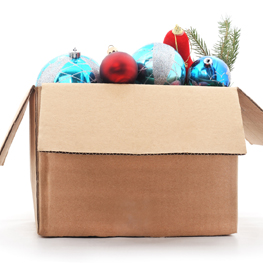
Start transitioning your child as soon as you can. Without a doubt, the holidays can over-stimulate neurotypicals and even more so with individuals on the spectrum. Holidays mean a long break from school. No quizzes and exams to burn the midnight oil for, no class recitation, assignments and stage performances. They get to see their family and friends - and sleep or romp all they want with nary a care about tomorrow. All these things can make transitioning from the holidays back to a regular routine more stressful and taxing to adults, teens and especially for those with autism.
Like starting the school year all over again, transitioning back to a structured schedule from a lengthy holiday requires a lot of effort on both a parent’s part and an individual with autism’s part. This is where proper planning comes in and to give you an idea of how I plan ahead for my son, John, here are some tips that could help.
The best time is now. Start transitioning your child as soon as you can. Reach out to their teachers and school mentors on specific subjects that will be discussed after the holidays. A week or two prior to the end of the holiday vacation, talk about this with your child for at least 10 to 15 minutes a day. The key is to tackle school subjects and activities your child enjoys the most. Be mindful and try to stay away from any triggers, which may make your child anxious or uninterested. Kids, whether with neurotypicals or autism, can find it hard to let the holiday spirit die down. It takes time for kids on the spectrum to recover from the lovely lull the holidays bring.
Back home earlier. If traveling for the holidays, always see to it your return date from your vacation will give you and your child ample breathing space prior to going back to school. As an adult, I often have a hard time saying good-bye to family and friends. Your child, too, I believe feels the same way. Having fun and being in the comfort of people who show you love and acceptance can tug at the heartstrings when good-byes are said. Let your child rest for at least three days before they have to go back to school.
Be involved. In the same way as you prepare for the school year, preparation is vital when returning from a long holiday. My son John and I normally create a schedule together. We create a timed schedule in the morning. We plan ahead our activity/activities for the day and do a guessing game on his daily activities for his eventual return to school. This helps ease the transition and makes him well aware that amid all the fun he is experiencing at the moment, school and his usual activities, like therapy, will need to resume once we are back home.
Say good-bye to holiday décor. Of course, to many autism families, Christmas, Hanukkah, New Year’s, etc. isn’t the same without festive décor. One best way to transition and make your kids understand vacation’s over is to take down the decorations together. Taking down visual reminders and keeping them busy organizing it all for storage can be of great help in the transition process. Replace the holiday decorations and décor with the timetable you created together. This will gently remind your children that vacation is over, and school and normalcy is starting up again.
Do it the fun way. When planning for a post-holiday transition, always remember to do it in a pleasurable and relaxing manner. Let your autistic child enjoy the moment! Don’t be pushy, as then they may feel like they haven’t had a relaxing break. Don’t do all of my suggestions when they feel like sleeping the whole day or when all they can think about is going to the beach with their cousins. Social interaction will do children with autism good and make your child savor the moment too.
For each autism family, enjoying the holiday vacation can be different. To some families, shutting themselves out of the holiday mania may also be of help. This is even more helpful to kids who have a hard time coping with the sensory overload the holidays can bring. Take the time to talk with your child on a daily basis - even nonverbal kids will appreciate the interaction. Some kids may take post-holiday transitioning in stride, while others might find it difficut. But by simply being there with them, every step of the way, will make a huge difference.
Pamela is the author of Living Autism Day by Day: Daily Reflections and Strategies to Give You Hope and Courage, an award-winning and No.1 bestseller on Amazon. A staunch advocate for autism, she is also the mind behind the powerful website, livingautismnow.com, an online portal for parents, caregivers, individuals with ASD, service providers and experts to interact with each other, to raise awareness and locate the best possible services for them.
Calgary’s Child Magazine © 2024 Calgary’s Child